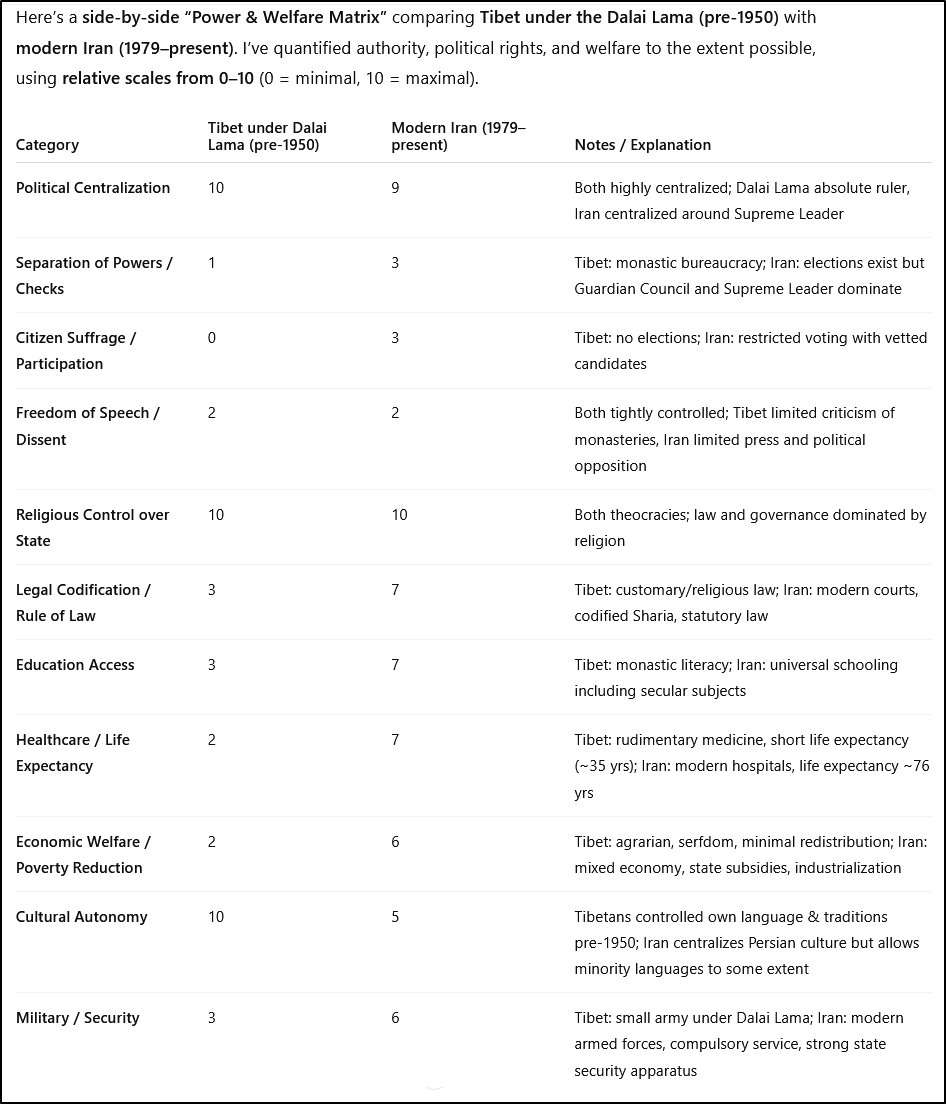Chinese vs US Aggression - Tibet, Democracy
China is constantly being portrayed as aggressive and a threat to other countries - by American sources. As far as I can tell, this is astroturf. Here's why.
China is constantly being portrayed as aggressive and a threat to other countries - by American sources. As far as I can tell, this is astroturf. Here’s why.
x
Tibet - why China “invaded”.
Tibet- had always been under suzerainty of China. In 1904 Britain and Russia signed a treaty recognising that. Britain, which had been destroying China tried to move in on Tibet, which provided not only access to invade China, but also control of its water. Britain was literally installing troops.
Here’s a short sampling of what Britain had been doing to China before that (ignore the title - culture wars simply distract from the true nature of what the Western colonists, particularly Britain, did to China):
While I don’t support China’s actions from the point of view of Tibet’s self determination, it was Britain’s aggression that caused it, and China’s action was to stop Britain, not to oppress Tibet as it is portrayed.
In contrast to US annexing or destroying colonies and neighbours like Puerto Rico, Cuba, China has built it up taking it out of a theocracy with 80% poverty (which US and Britain never tried to do).
Suzerainty is a relationship where one state, the suzerain, has dominant influence or control over another, the subordinate state or vassal state, allowing the latter internal autonomy but controlling its foreign relations and some economic aspects. While the subordinate state is not fully sovereign, it is also not entirely conquered or integrated, as it retains its own government and some degree of self-rule.
This arrangement was common in historical empires, where powerful empires would exert influence over weaker, often tributary, states.
Unlike Puerto Rico, Tibet gets to vote in national elections. Puerto Rico is nothing more than a resource slave to the US where the Puerto Ricans are kept in abject poverty, and still being driven off the little land they have left.
Britain, Russia and Japan had all been taking large swathes of China’s territories.
What Britain did is analogous to China subverting and sending troops into Ireland or Scotland before England finally conquered them and fully amalgamated them.
Tibet should be looked at as a historic case calling for self determination, not some crime committed by China in 1950.
Did China take away human rights and damage a “good” country?
Well, here’s a side-by Side Comparison of Tibet with modern day Iran.
Has the US done any better?
Are you aware that Japan and Germany are literally the only 2 countries the US has ever installed democracy?
In most interventions, the U.S. either:
Installed dictatorships (e.g., Iran 1953, Guatemala 1954, Chile 1973, Congo 1960).
Backed military juntas (e.g., Greece 1967–74, Brazil 1964).
Produced weak, unstable democracies that collapsed or remain fragile (e.g., Afghanistan, Iraq, Libya), RUSSIA.
Here’s a sampling:
Summary
Apart from Germany and Japan, there are no clear-cut cases where the U.S. directly installed a healthy, lasting democracy through military intervention or regime change. At best, in places like South Korea, Taiwan, and Italy, democracy emerged decades later, often in spite of U.S. support for authoritarian regimes in the interim.
So the honest answer is: Two (Germany and Japan). Every other U.S. intervention has either delayed democracy, produced authoritarianism, or resulted in unstable states.
TBC - more detail
x



